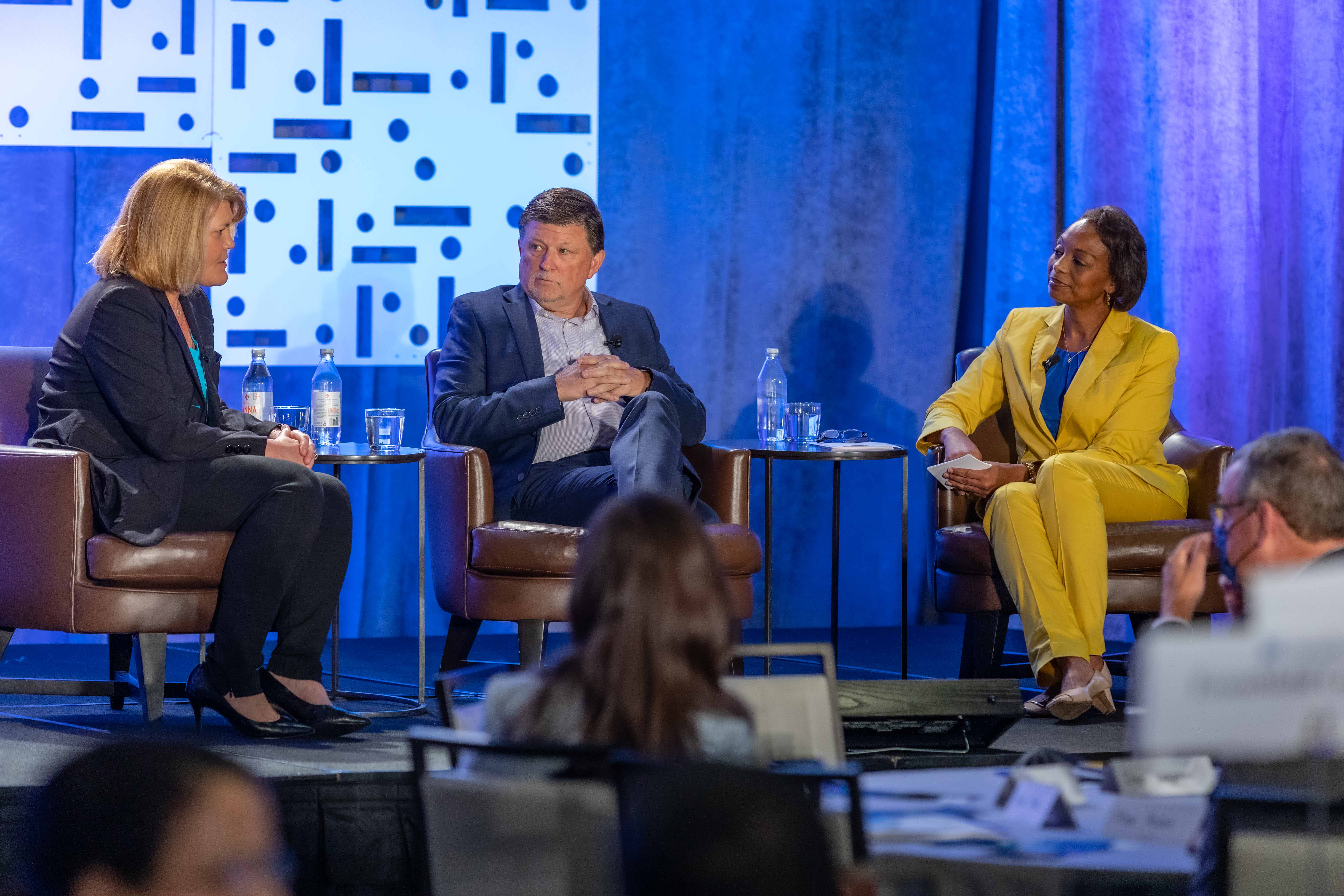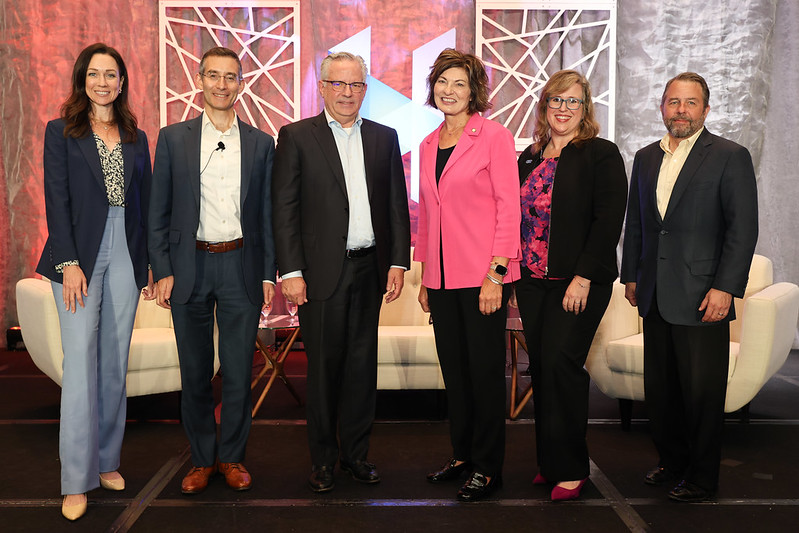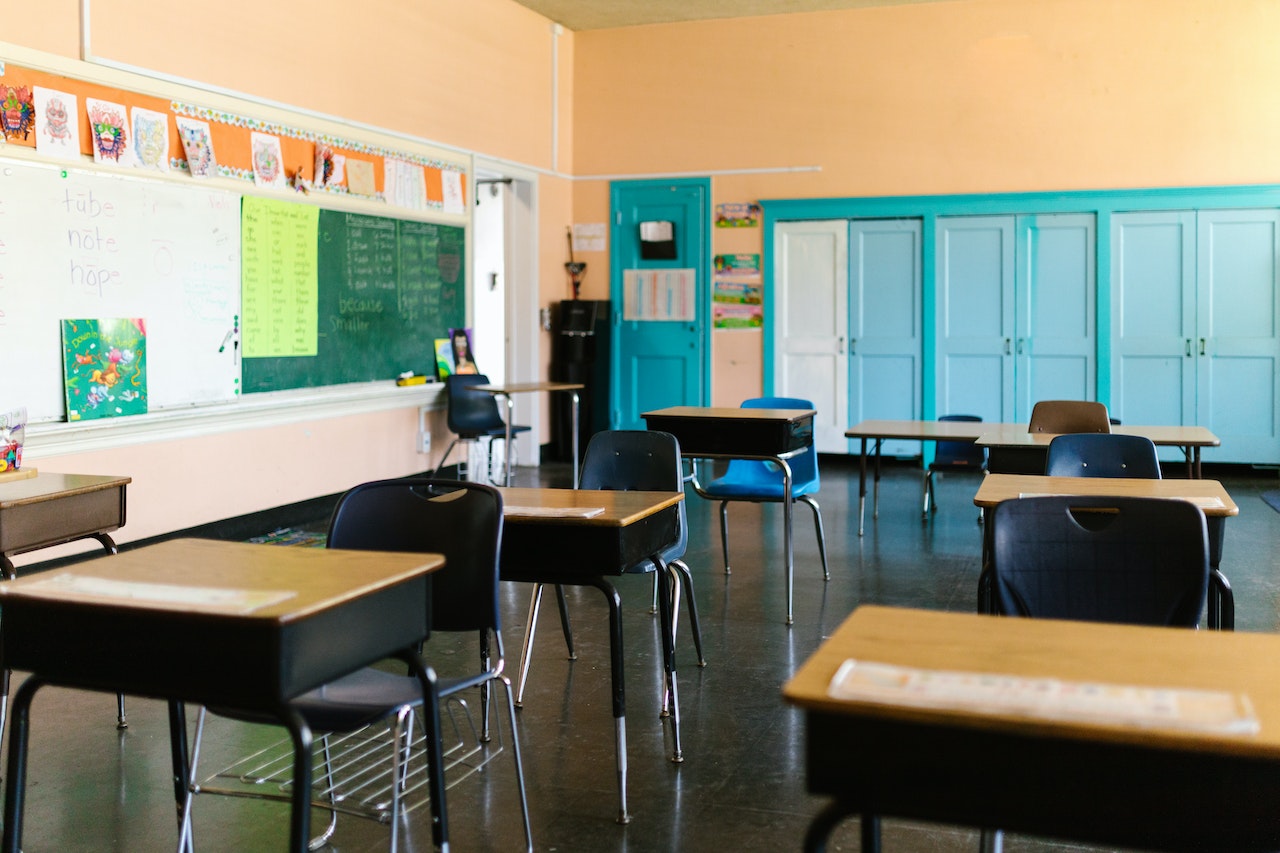Public, Higher Education Leaders Share Insights on Preparing Students for an Ever-Evolving Future
Published Oct 18, 2021 by Julia McGowen
A strong education system is key to building opportunity for all Houstonians. It contributes to the long-term success of our young people, increases equity and is intrinsically tied to Houston’s ability to remain competitive with a talented workforce.
Many would argue that ensuring the opportunity for all to succeed is dependent on two things: a strong education system and career pathways. These topics among others were front and center at the Greater Houston Partnership’s third annual State of Education. In a two-part event, Houston-area superintendents and Rice University President David Leebron shared their outlook on shifts in learning models, coping with learning loss and the knowledge needed to drive a 21st century economy.
Panel Discussion Discussing a Look Forward at K-12 Education
Alief ISD Superintendent HD Chambers and Dr. Jennifer Blaine, superintendent of Spring Branch’s school district, engaged in a dialogue with Dr. Melanie Johnson, President & CEO of the Collaborative for Children on the outlook for regional K-12 school systems.
COVID-19 has undoubtedly posed negative impacts to learning and social growth and as the pandemic persists, the long-term impacts will not be fully known for some time. “There is a propensity for a large skills gap within this generation due to the pandemic,” said Blaine. “We’re looking at three years or more in terms of learning loss – loss in terms of literacy, numeracies, basic foundational schooling. That’s the academic piece but there is also social and emotional wellness that is developed in school that is lost too.”
Chambers added that like all of us, students are coping with the pandemic in varying ways. “When students aren’t adjusting well, it’s hard to teach them skills – before we address learning loss, we need to address the broader loss and get students to a point where they are able to absorb learning and schooling.”
The panel shed light on the educator workforce and challenges in retaining and attracting high-performing teachers. Chambers noted that his district has been partnering with local universities to recruit incoming freshmen and showcase career paths in the education space to increase the pipeline of teachers. “Rewarding quality teachers to remain in the classroom isn’t a sustainable solution, we need a resolution to the bigger problem,” Chambers said. Blaine shared that she often works with her teachers to find opportunities for growth and advancement while keeping them in the classroom. “Spring Branch ISD has instituted an opportunity culture where teachers can be incentivized to stay in the classroom while making more money through added programs.”
The two superintendents also shared ways that industry and the business community can contribute to the future of our schools and students. Chambers said that “members of the business community can help by partnering with or volunteering in their local school districts.” The idea of partnering with school districts and business in a meaningful way – like the Partnership’s UpSkill Houston Initiative – helps to align what employers expect so education and skillsets can be adapted, he said. Chambers added that initiatives like these help to legitimize non-four-year degree programs and opens the door to an expanded pipeline of skilled laborers.
Blaine offered that “technical education is key, offering pathways for students to earn a certification when they graduate that propels them directly into the workforce. SBISD is also currently looking for business partners to build intern and externships to fuel these programs."
Fireside Chat Explores Houston's Higher Ed Future
Following nearly two decades at the helm of Rice University, President David Leebron recently announced he would step down from the role at the close of the 2021-2022 academic year. Leebron sat down with Partnership President and CEO Bob Harvey for a fireside chat where the two discussed the changes coming to higher education and the critical role Rice plays in the aspirations of the city of Houston.
Leebron came to Houston after serving as the dean of Columbia Law School, quipping that at the time, coming from NYC to Houston seemed like an adventure. “Rice brought me to Houston but the important thing that has kept us here is the City of Houston and the people, the opportunities, the ambition of the city and the way the city works.” Leebron added that he feels that Houston is the most misunderstood city of North America but can attest that its entrepreneurial spirt, greenspaces and diversity foster incredible growth in his students and encourage the student body to take full advantage of what the city has to offer.
When asked about his outlook on higher ed’s future, Leebron noted that today, institutions have the ability to serve a wider spectrum of students at various stages and setting of their lives than ever before – which Leebron feels is critical to advancing equity. “Higher ed is an engine of opportunity, a necessary part of the fabric of the country to make it a fair and equitable country. A vast majority of higher ed remains public not profits guided by mission and the larger needs of society. Investment in society including equity of society is what we’re here for at the end of the day.”
Leebron went on to describe two exciting developments spurred by Rice that are contributing to the growth of Houston’s innovation ecosystem and strengthening its position as the Energy Capital of the World. “In Rice’s strategic plan, we realized we needed to double down on engaging with and empowering the success of the city of Houston,” he said. This engagement is illustrated in the development of the Ion and its surrounding 16-acre innovation district that sits at the geographical center of Houston’s institutions of higher education. “Houston needed a marque place for people to come to know our commitment to tech, innovation, startups,” Leebron said. The Ion will ultimately bring together some presence of all Houston’s higher ed institutions, community colleges, industry leaders and startups to be a center for education and innovation.
Leebron also shared details on The Welch Institute for Advanced Materials noting that collective knowledge that comes with a development like this is critical to Houston remaining at the center of energy innovation. “Where ideas come from still matters, we need to continue to build relationships between industry, academia, research and application – this is what keeps companies here, they need to be close to where the ideas are created” Leebron said.
Learn more about Houston’s education systems and the Partnership’s work to unite higher education with business.
 The Houston Report
The Houston Report





















